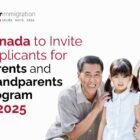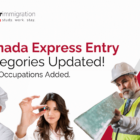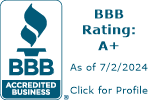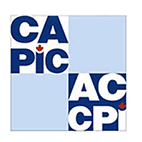Immigration dreams have been more expensive since April 30, and Canada has increased permanent residence fees. As of April 30, 2024, the cost of acquiring permanent residency in Canada will increase from CAD 515 to CAD 575, representing a significant surge of approximately 12 percent.
The new fee structure will be determined based on Canada’s Immigrant and Refugee Protection Regulations (IRPR), which are calculated as the country’s consumer price index over the past two years. These fees will be applicable between April 2024 and March 2026.
The application fees for various permanent residency programs have increased, including the Federal Skilled Worker Program, which is very popular among applicants who seek permanent residency through the Express Entry system. Not only are the fees for permanent residency applications increasing, but the Canadian government is also raising fees for various other immigration programs.
This includes Federal Skilled Workers, Provincial Nominee Program, Quebec Skilled Workers, Atlantic Immigration Class, and most economic streams (Rural, Agri-Food) along with their spouses or common-law partners, who will now have to cough up more money from CAD 850 to CAD 950. Additionally, the fee for accompanying a dependent child will go up from CAD 230 to CAD 260, according to the report.
Latest Changes to Canadian Permanent Residence Fees
Here are the details of the fee changes:
| Category | Fee (Previous) | Fee (Current) |
|---|---|---|
| Right of Permanent Residence Fee | Principal applicant and accompanying spouse or common-law partner | $515 → $575 |
| Federal Skilled Workers, Provincial Nominee Program, Quebec Skilled Workers, Atlantic Immigration Class, and most economic pilots (Rural, Agri-Food) | Principal applicant | $850 → $950 |
| Accompanying spouse or common-law partner | $850 → $950 | |
| Accompanying dependent child | $230 → $260 | |
| Live-in Caregiver Program and caregivers pilots (Home Child Provider Pilot and Home Support Worker Pilot) | Principal applicant | $570 → $635 |
| Accompanying spouse or common-law partner | $570 → $635 | |
| Accompanying dependent child | $155 → $175 | |
| Business (Federal and Quebec) | Principal applicant | $1,625 → $1,810 |
| Accompanying spouse or common-law partner | $850 → $950 | |
| Accompanying dependent child | $230 → $260 | |
| Family reunification (spouses, partners and children; parents and grandparents; and other relatives) | Sponsorship fee | $75 → $85 |
| Sponsored principal applicant | $490 → $545 | |
| Sponsored child (principal applicant under 22 years old and not a spouse/partner) | $75 → $85 | |
| Accompanying spouse or common-law partner | $570 → $635 | |
| Accompanying dependent child | $155 → $175 | |
| Protected persons | Principal applicant | $570 → $635 |
| Accompanying spouse or common-law partner | $570 → $635 | |
| Accompanying dependent child | $155 → $175 | |
| Humanitarian and compassionate consideration / Public policy | Principal applicant | $570 → $635 |
| Accompanying spouse or common-law partner | $570 → $635 | |
| Accompanying dependent child | $155 → $175 |
The Canadian government releases its immigration target annually, citing a three-year projected plan for permanent residents and other immigration target levels. From 2024, for the first time, the government plans to expand the immigration target plan to include both temporary and permanent resident arrivals.
According to the immigration target levels for permanent residency announced last year, the government is expected to welcome 48,5000 and 500,000 new permanent residents in 2024 and 2025, respectively.
Right of Permanent Residence (RPR) Exemption
The exemptions from the Right of Permanent Residence (RPR) Fee according to Immigration, Refugees and Citizenship Canada (IRCC):
- Sponsored Child: A child under 22 years old who is unmarried or in a common-law partnership sponsored by a principal applicant under the family reunification class is exempt from paying the RPR fee.
- Principal Applicants Under Humanitarian and Compassionate Consideration: Under specific circumstances, applicants in the “humanitarian and compassionate consideration” and “public policy” categories are also exempt from the RPR fee.
Additionally, it’s important to note that applicants in the “permit holder” class cannot include accompanying family members in their PR applications. Instead, each eligible individual must submit their own application for Canadian PR as a principal applicant.









